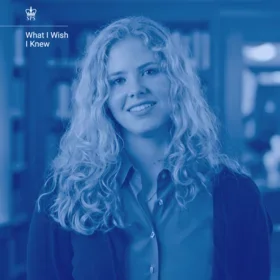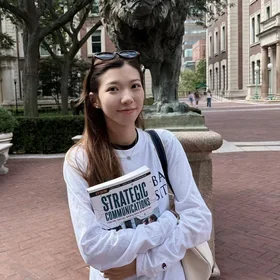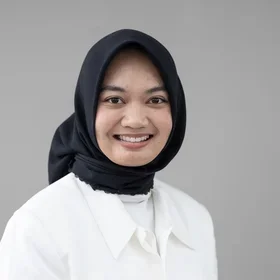By Ben Jakob Zulechner, M.S. in Technology Management student
Attending a prestigious institution like Columbia University is intimidating, but it’s also exciting and incredibly rewarding. My time in the Columbia University School of Professional Studies M.S. in Technology Management program has taught me many lessons, including ones that go far beyond the classroom.
Here’s what I’ve learned in my first semester about how to thrive in a challenging academic environment:
1. Find community.
Your peers shape your experience. Being present and socially active early on helped me find a circle of smart, supportive, and inspiring people. These friendships became my support system both academically and socially and gave me those much-needed breaks for fun.
2. Lean on faculty and professors.
Professors are not only experts in their fields but also deeply committed to helping students succeed. By showing interest beyond the classroom, you can gain invaluable support. Art Chang, lecturer; Dawn Barber, industry liaison; and Katja Schroeder, associate program director and senior lecturer, were all instrumental in connecting me with industry professionals from leading technology companies such as Amazon. They also arranged site visits to key players in the NYC start-up ecosystem, such as Newlab in Brooklyn, and supported my student club, the Technology In Business Association, by helping us secure guest speakers and top-tier event locations.
3. Listen to the “hallway radio.”
What’s the hallway radio? It’s the invaluable information you hear between classes, from recommendations on must-take courses and extracurricular clubs to reminders about deadlines and interesting campus events. It is how I found out about can’t-miss opportunities, such as a fireside chat with Yann LeCun, VP and chief AI scientist at Meta, during which he examined whether AI will match and exceed human-level intelligence. I encourage you to engage in these hallway moments, as they serve as an unofficial guide to making the most of your time on campus.
4. Join student organizations.
Joining clubs isn’t just for fun; it’s an avenue to connect with professionals and build a network. Applying to the Technology in Business Association and becoming president has been a cornerstone of my Columbia experience. It has given me the chance to collaborate with talented student leaders and organize a site visit to the Celonis offices at One World Trade Center, fostering a relationship with the company that I can leverage in my summer internship search.
5. Know your motivation.
What drives you? Knowing your “why” helps you design productive days and find fulfillment. For me, it’s the feeling of getting ahead. Accomplishing meaningful tasks early in the day sets the tone for everything else.
6. Approach group work effectively.
Group work is an important part of the graduate program experience. Be prepared, structured, and proactive about scheduling meetings and aligning goals. I’ve learned to prioritize who I work with over the subject matter. Great teamwork often leads to great friendships.
7. Venture beyond your own classes.
Be curious. Sit in on a friend’s lecture or attend presentations outside your field. You’ll gain fresh perspectives and inspiration. Attending the Design and Innovation class presentations was transformative for me. Hearing about student projects and exploring design thinking gave me valuable insights into how a structured approach to ideation can help me develop solutions for challenges I have encountered in my start-up.
Attending a prestigious institution like Columbia can be daunting, but making the most of opportunities and building the proper habits set the stage for both academic and personal success.
About the Program
Columbia University’s Master of Science in Technology Management is a hands-on technology leadership development program designed to train professionals for equal fluency in tech fundamentals, business operations, and ethical leadership.
The fall 2025 application priority deadline for the Technology Management program is February 15. The final deadline is June 1. The program is available for part-time or full-time enrollment. Learn more about the program here.


